Related Research Articles

Maria Bethânia Viana Teles Veloso is a Brazilian singer and songwriter. Born in Santo Amaro, Bahia, she started her career in Rio de Janeiro in 1964 with the show "Opinião" ("Opinion"), she is "The Queen of Brazilian Music". Due to its popularity, with performances all over the country, and the popularity of her 1965 single "Carcará", the artist became a star in Brazil.

José Lins do Rego Cavalcanti was a Brazilian novelist most known for his semi-autobiographical "sugarcane cycle." These novels were the basis of films that had distribution in the English-speaking world.

Alberto de Almeida Cavalcanti was a Brazilian-born film director and producer. He was often credited under the single name "Cavalcanti".
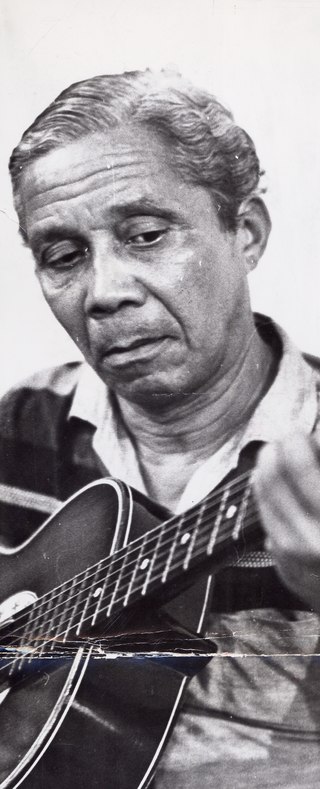
Nelson Cavaquinho was one of the most important singer/composers of samba. He is usually seen as a representative of the tragic aspects of samba thematics, with many songs about death and hopelessness. He was a prominent figure of samba school Estação Primeira de Mangueira.
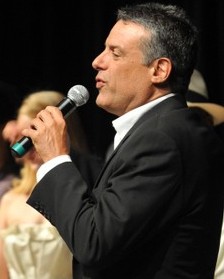
Fábio Villela Barreto Borges was a Brazilian filmmaker, actor, screenwriter, and film producer. He was best known for directing O Quatrilho and Lula, o filho do Brasil, a biography based on President Luiz Inácio Lula da Silva's early life, which had been the most expensive film in the history of Brazilian cinema upon its release. Barreto slipped into a coma in 2009 after being involved in a car accident in Rio de Janeiro and, in August 2014, was reported to be in a minimally conscious state. He died on November 20, 2019, after almost 10 years in a coma.
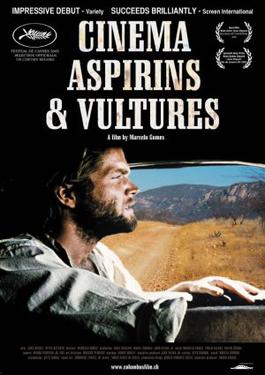
Cinema, Aspirins and Vultures is a 2005 Brazilian film directed and co-written by Marcelo Gomes. It was Brazil's submission to the 79th Academy Awards for the Academy Award for Best Foreign Language Film, but was not accepted as a nominee. It was also screened in the Un Certain Regard section at the 2005 Cannes Film Festival.

Olga is a 2004 Brazilian biographical drama film directed by Jayme Monjardim from a screenplay by Rita Buzzar, based on the 1985 biography of the same name by Fernando Morais. It was Brazil's submission to the 77th Academy Awards for the Academy Award for Best Foreign Language Film, but was not accepted as a nominee.
Azoulay, sometimes spelled Azoulai, Azulai or Azulay, etc. is a Sephardi Jewish surname, common among Jews of Moroccan descent. It is assumed that the family name Azulai is an acronym of the biblical restriction on whom a Kohen may marry: אשה זנה וחללה לא יקחו and, thus, indicating priestly descent. The Hebrew phrase ishah zonah ve'challelah lo yikachu means "a foreign [non-Israelite woman] or divorced [Israelite woman] shall not he [the Kohen] take".
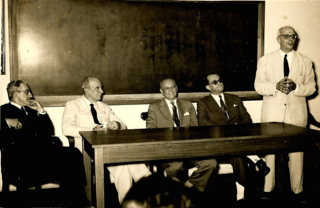
Heráclito Fontoura Sobral Pinto was a Brazilian lawyer known for his human rights activism and devout Catholicism. He strongly opposed dictator Getúlio Vargas and worked against Brazil's later military regime following the military coup of 1964.

Doces Bárbaros is a 1976 album by the Música popular brasileira supergroup of the same name. It was recorded June 24 of that year at Anhembi Stadium in São Paulo. Its members were Gilberto Gil, Caetano Veloso, Maria Bethânia and Gal Costa, four of the biggest names in the history of the music of Brazil. The band was the subject of a 1977 documentary directed by Jom Tob Azulay. In 1994, they performed a tribute concert to Mangueira school of samba.

Fernando Vendrell is a Portuguese film director and producer.
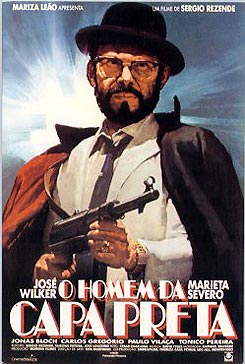
The Man in the Black Cape is a 1986 Brazilian drama film directed by Sérgio Rezende. Shot in Rio de Janeiro, it portrays the life of Tenório Cavalcanti, a Duque de Caxias politician who used to carry a machine gun dubbed "Lurdinha" with him.
Rolls Gracie was a Brazilian martial artist. He was a prominent member of the Gracie family known for their founding of Brazilian jiu-jitsu and considered by some the family's best ever fighter. He was teacher of Rickson Gracie, Carlos Gracie Jr., Royler Gracie, Maurício "Maurição" Motta Gomes, Márcio "Macarrão" Stambowsky, Rigan Machado and Romero "Jacare" Cavalcanti. He died in a hang-gliding accident in 1982. He is the father of Rolles Gracie and Igor Gracie.
The 2nd Grande Prêmio Cinema Brasil ceremony, presented by the Ministry of Culture of Brazil, honored the best audiovisual productions of 2000 and took place on February 10, 2001, at the Palácio Quitandinha in the city of Petrópolis, Rio de Janeiro beginning at 8:30 p.m. BRT. During the ceremony, the Ministry of Culture presented the Grande Prêmio Cinema Brasil in 18 categories. The ceremony, televised by TV Cultura and Televisão Educativa, was directed by Bia Lessa and hosted by stylist Felipe Veloso.

Events in the year 1975 in Brazil.
Brazil: A Report on Torture is a 1971 documentary film directed by Haskell Wexler and Saul Landau. The film had its premiere on October 21, 1971 at the Whitney Museum in New York City.

The Jew is a 1996 Brazilian-Portuguese co-production film directed by Jom Tob Azulay with Filipe Pinheiro in the title role, Dina Sfat, and Mário Viegas as the king. It tells the story of the writer António José da Silva, nicknamed "the Jew", burned at the stake during the reign of King João V of Portugal in 1739.
Di Cavalcanti, or simply Di, is a 1977 Brazilian documentary short film by Glauber Rocha, about the funeral of the internationally renowned painter Di Cavalcanti.
Anita Waingort Novinsky was a Brazilian historian, who specialized in the Portuguese Inquisition in Brazil, and the history of Jewish presence in Brazil, notably, the customs of the Crypto-Jews of the country and the renaissance of the awareness of their Jewish roots, 200 years after the end of the Inquisition in Brazil. She was the author of several books on this subject, an Associate Professor and the founder and chairperson of the Museum of Tolerance at the University of São Paulo.

Diogo Álvaro Ferreira Moncorvo, known professionally as Baco Exu do Blues, is a Brazilian rapper, singer, and composer. He rose to prominence in the Brazilian rap scene with his 2017 album Esú. He was nominated for a Latin Grammy Award in 2022 for best Portuguese language Rock or Alternative album. The main characteristics of his work include strong metaphors with raw lyricism and poetics, with topics ranging from love and sex to power, religion, and society.
References
- ↑ "Folha de S.Paulo - Minha história - Jom Tob Azulay: Filho pródigo - 08/03/2011". www1.folha.uol.com.br. Retrieved 2020-04-04.